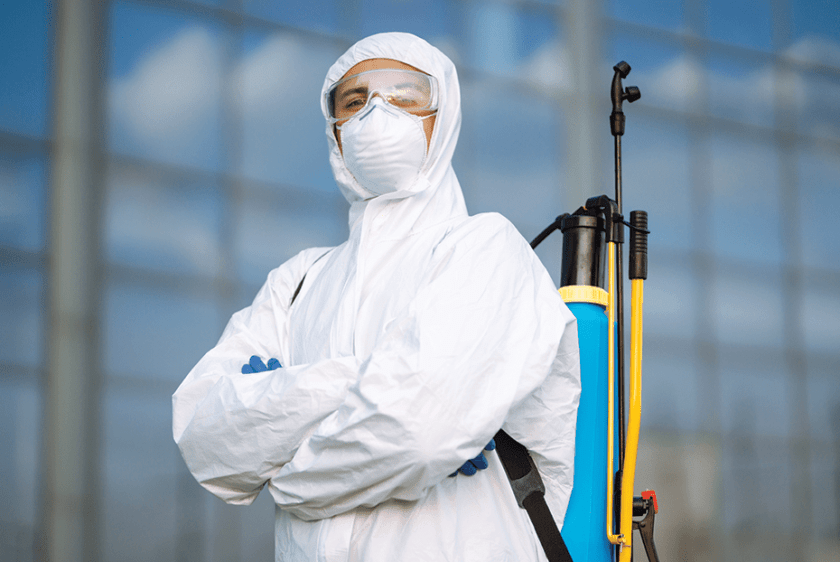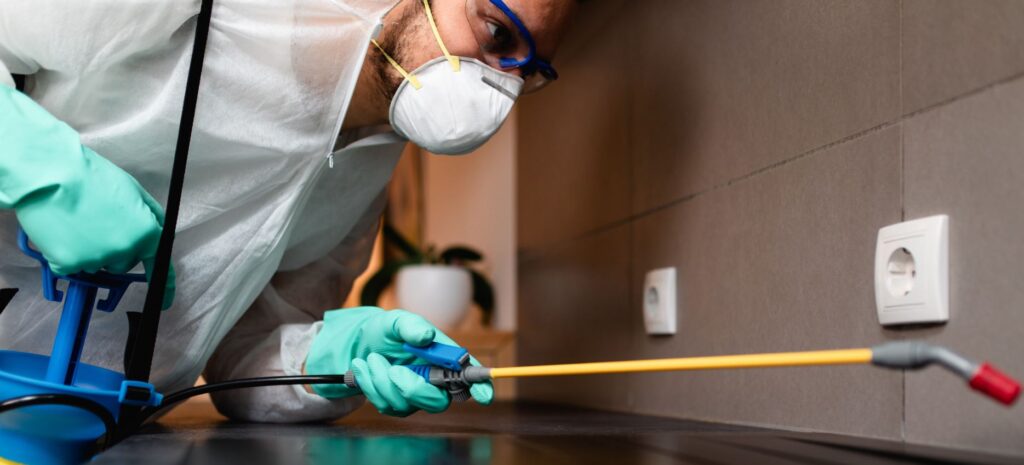Safe and Dependable Bug Control for Lasting Defense
Reliable parasite administration requires a complex approach that balances eco-friendly stability with the demand for efficient bug suppression. The nuances of these techniques may not be right away clear, prompting a more detailed evaluation of the techniques that can lead to lasting bug control end results.
Recognizing Pest Control Methods
Bug control includes a range of techniques targeted at managing and eradicating undesirable insects and rodents that can threaten both health and home. Comprehending these techniques is essential for reliable insect administration.
The primary categories of pest control techniques consist of mechanical, organic, and chemical strategies. Mechanical methods entail physical barriers and catches to avoid bug entry and capture undesirable types. For example, utilizing screens on home windows or utilizing sticky traps can dramatically lower pest populaces without introducing hazardous compounds.

Chemical insect control is commonly one of the most recognized method, utilizing chemicals to remove bugs. These chemicals can be reliable yet should be made use of with caution to avoid damaging results on non-target varieties and the atmosphere.
Benefits of Eco-Friendly Solutions
How can environmentally friendly options transform bug control methods? The adoption of environment-friendly pest control approaches uses many advantages, dramatically enhancing the efficiency and safety of parasite management.

Another advantage is the favorable influence on local biodiversity. Environment-friendly remedies are made to target certain pests while protecting useful insects and wildlife, advertising a well balanced ecosystem. This method straightens with the growing customer need for sustainable techniques, improving the track record of pest control carriers.
Integrated Bug Monitoring Strategies
The application of environment-friendly solutions naturally causes the adoption of Integrated Insect Monitoring (IPM) approaches, which further enhance insect control efficacy. IPM is an alternative method that integrates several tactics to take care of insect populations while lessening environmental effect. This strategy highlights making use of organic, cultural, mechanical, and chemical controls, ensuring a well balanced and sustainable method of insect management.
One basic facet of IPM is the complete assessment of parasite activity and ecological problems. By keeping track of insect populations and determining their life process, specialists can carry out targeted interventions that disrupt the parasite's habitat or lifecycle, reducing dependence on chemical pesticides. Additionally, social techniques such as crop rotation and habitat control can significantly lessen parasite establishment and recreation.
An additional essential part This Site is making use of organic control agents, such as helpful insects or bacteria, which can naturally subdue insect populaces. When chemical applications are needed, IPM prioritizes the use of low-risk pesticides and applies them precisely, decreasing direct exposure to non-target organisms and people.
Integrating IPM techniques not just improves insect control efficiency but also advertises a more secure community, lining up with the growing demand for lasting practices in bug management.
Safe Practices for Homeowners
Comprehending the value of risk-free practices in bug control can equip home owners to efficiently take care of pest concerns while securing their health and wellness and the environment. Applying preventative procedures and safe techniques is crucial in reducing direct exposure to harmful chemicals.
Property owners ought to initially examine their setting for conditions that draw in insects, such as standing water, food, and mess waste. Consistently cleaning and sealing entry points can hinder pests from getting into the home. Utilizing natural deterrents, such as vital oils or diatomaceous planet, can give efficient choices to chemical pesticides.
When chemical treatments are necessary, home owners ought to go with items that are specifically classified as risk-free for property use. It is necessary to comply with application guidelines thoroughly to avoid overexposure. In addition, using targeted therapies in locations where bugs are recognized, instead of covering splashing, can substantially lower chemical usage.
Last but not least, maintaining open communication with parasite control specialists is essential. Property owners should ask concerning the security of products utilized and request green alternatives whenever possible. By embracing these risk-free practices, homeowners can develop a much healthier living environment while successfully taking care of parasite issues.

Tips for Long-Term Security
Developing a bug management method that stresses long-lasting defense can substantially boost the effectiveness of the secure practices formerly discussed. To accomplish this, homeowners must implement regular evaluations of their home, concentrating on hidden areas such as attic rooms, cellars, and crawl rooms. Early discovery of pest activity is crucial in avoiding invasions from taking hold.
These methods reduce attractants that attract insects right into the home. Sealing access factors, such as fractures around doors and home windows, can properly obstruct potential parasite gain access to.
Landscaping should additionally be considered; maintaining plants trimmed and keeping a distance in between greenery and the home decreases hiding places for insects. Making use of natural deterrents, such as crucial oils or diatomaceous earth, can better dissuade problems without resorting to rough chemicals.
Lastly, teaming up with a professional bug control solution for regular analyses can provide an additional layer of security. These professionals can provide customized recommendations and advanced therapies, ensuring that your home stays secured versus pests in the Get More Information long-term.
Verdict
Finally, dependable and risk-free parasite control calls for a multifaceted method that highlights green methods and integrated insect administration. By applying all-natural deterrents, performing regular inspections, and maintaining appropriate cleanliness, homeowner can significantly reduce pest populations while safeguarding useful bugs and the atmosphere. Partnership with expert insect control services enhances the effectiveness of these techniques, guaranteeing tailored solutions that provide lasting defense and satisfaction versus future invasions.
Efficient insect management requires a complex strategy that stabilizes environmental integrity with the need for reliable bug reductions. The adoption of eco-friendly parasite control approaches uses various benefits, dramatically improving the efficiency and safety of parasite administration.The implementation of eco-friendly options naturally leads to the fostering of Integrated Bug Management (IPM) approaches, which additionally enhance parasite control effectiveness. exterminator coquitlam. By keeping track of parasite populations and identifying their life cycles, experts can execute targeted treatments that interrupt the pest's habitat or lifecycle, reducing dependence on chemical pesticides.In bed bug problem conclusion, risk-free and reputable pest control needs a multifaceted technique that emphasizes green methods and incorporated pest administration